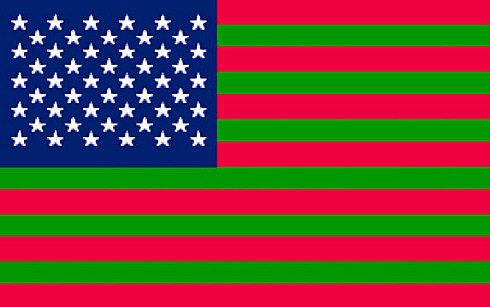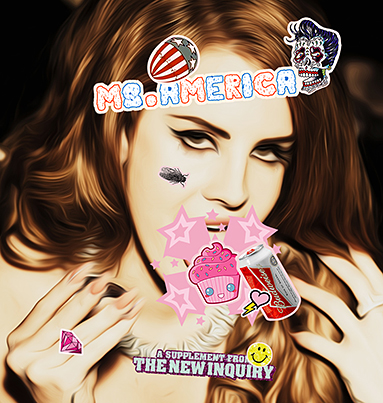Critical Links: July 3rd, 2015
"As in: how to avoid facing the country’s ongoing crimes, against its own and its others, which are only made more severe by its many declarations of goodness. How to cleave to a history whose most famous actors at best resemble bloated props. How to reconcile the decades spent trying to convince us a looming threat is targeting something more fundamental to us than the policies dispatched from Washington—something shot in Super 8, not by a drone."
Ayesha Siddiqi in Ms. America
 "In a world where global trade, facilitated by telecommunication and e-commerce, has blurred national borders, nationalism in general had seemed increasingly to be losing its relevance—until September 11, 2001. In the months following the attacks, nationalistic fervor increasingly gave way to the realization that isolated sovereignty was untenable in a global economy. What happens to an emblem of solitary statehood when that state's internal affairs become entangled with geopolitical commitments? How can the notion of a flag reflect the new reality rather than pining for a nostalgic sovereignty that no longer exists? net.flag is one answer to those questions."
"In a world where global trade, facilitated by telecommunication and e-commerce, has blurred national borders, nationalism in general had seemed increasingly to be losing its relevance—until September 11, 2001. In the months following the attacks, nationalistic fervor increasingly gave way to the realization that isolated sovereignty was untenable in a global economy. What happens to an emblem of solitary statehood when that state's internal affairs become entangled with geopolitical commitments? How can the notion of a flag reflect the new reality rather than pining for a nostalgic sovereignty that no longer exists? net.flag is one answer to those questions."
Jon Ippolito in net.flag
 "Laura Poitras documents the dissidents Ai Weiwei and Jacob Appelbaum as they collaborate on an art project."
"Laura Poitras documents the dissidents Ai Weiwei and Jacob Appelbaum as they collaborate on an art project."
Laura Poitras in The Art of Dissent
 "There’s no question Hancock’s signature is the biggest, and by a wide margin. By my measurements, Hancock’s signature comes in at 1.3 inches tall and 4.7 inches wide. This makes the box needed to enclose the signature 6.1 square inches. Compare that with Sam Adams’ signature, which takes up a mere 0.6 square inches of surface area."
"There’s no question Hancock’s signature is the biggest, and by a wide margin. By my measurements, Hancock’s signature comes in at 1.3 inches tall and 4.7 inches wide. This makes the box needed to enclose the signature 6.1 square inches. Compare that with Sam Adams’ signature, which takes up a mere 0.6 square inches of surface area."
Ben Blatt in Was John Hancock’s Signature Too Big?
 "Frank hoped to express the emotional rhythms of the United States, to portray underlying realities and misgivings — how it felt to be wealthy, to be poor, to be in love, to be alone, to be young or old, to be black or white, to live along a country road or to walk a crowded sidewalk, to be overworked or sleeping in parks, to be a swaggering Southern couple or to be young and gay in New York, to be politicking or at prayer."
"Frank hoped to express the emotional rhythms of the United States, to portray underlying realities and misgivings — how it felt to be wealthy, to be poor, to be in love, to be alone, to be young or old, to be black or white, to live along a country road or to walk a crowded sidewalk, to be overworked or sleeping in parks, to be a swaggering Southern couple or to be young and gay in New York, to be politicking or at prayer."
Nicholas Dawidoff in The Man Who Saw America
